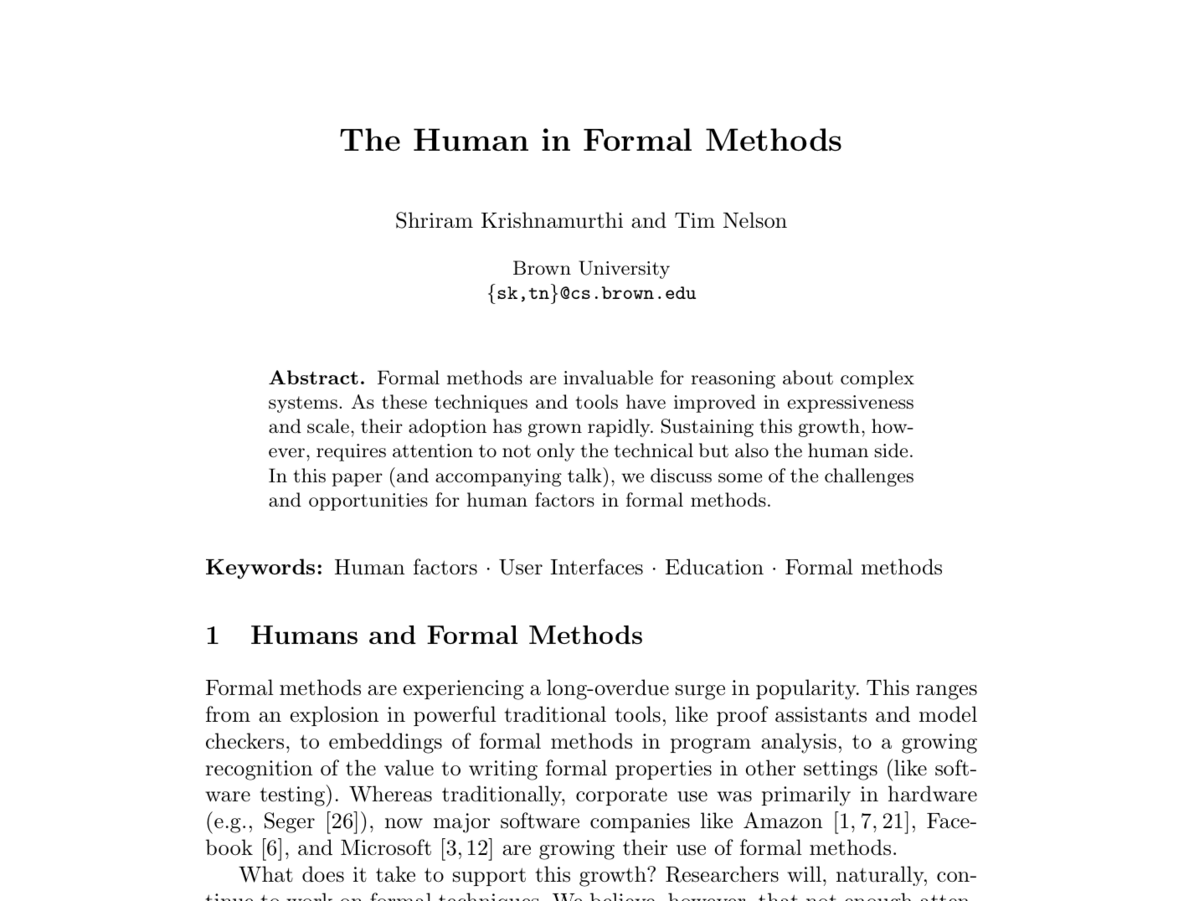As formal methods improve in expressiveness and power, they create new opportunities for non-expert adoption. In principle, formal tools are now powerful enough to enable developers to validate realistic systems artifacts without extensive formal training. However, realizing this potential for adoption requires attention to the technical and human side—which has received extraordinarily little attention from formal methods research.
This talk presents some of our efforts to address this paucity. We apply ideas from cognitive science, human-factors research, and education theory to improve the usability of formal methods. Along the way, we present misconceptions suffered by non-experts and show how technically appealing designs—which experts may value—may fail to help regular users.
This session will build on previous work. There’s a paper that introduces the concept and then a conference video that expands on it. But that covers only about 30% of what is on the cards for this session. So, even if you’ve read the paper and watched the video, the professor has new insights and research to share with you.
The Paper: https://cs.brown.edu/~sk/Publications/Papers/Published/kn-human-formal-methods/
Shriram Krishnamurthi. If having a Wikipedia page on him isn’t “notorious enough” for you, here’s his Twitter.
Shriram is the Vice President for Programming Languages at Brown University in Providence, RI, USA. He’s not, really, but that’s what it says on his business card. At heart, he’s a person of ill repute: a Schemer, Racketeer, and Pyreteer. He believes tropical fruits are superior to all other kinds. He is terrified of success because he may be forced to buy a suit. He is known to interrogate his audiences to ensure they’re paying attention. So, be alert. You can read the email later.
Postal Address: Vigyan 1st floor, 9, Lavelle Road, Ashok Nagar, Bengaluru, Karnataka 560001
Google Maps: https://maps.app.goo.gl/q3hoLZNBu2CL5WSh7 (Rest assured; just because Microsoft is kind enough to host us, we’re not going to use Bing Maps for the address)
- Visitors are requested to park their vehicles only at designated parking areas as directed by the team and as per availability only.
- Yellow Board vehicles are not permitted to park inside the premises.
- All visitors need to obtain a “Visitors Badge” by verifying their government ID like Aadhar card, driver’s license, or any other suitable Govt ID at the building reception and need to be escorted throughout their stay on Microsoft premises.
- Visitors should return the temporary visitor pass to the receptionist at the end of their visit. Visitors must abide by the “No Photography” & “No Smoking” policies on Microsoft premises

